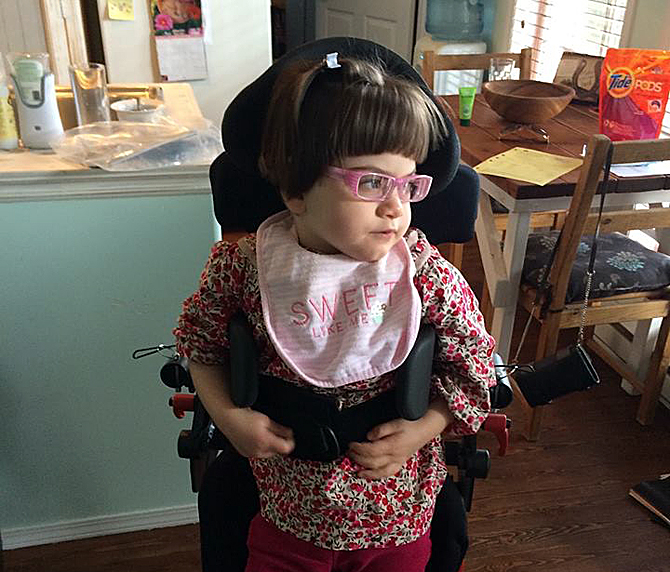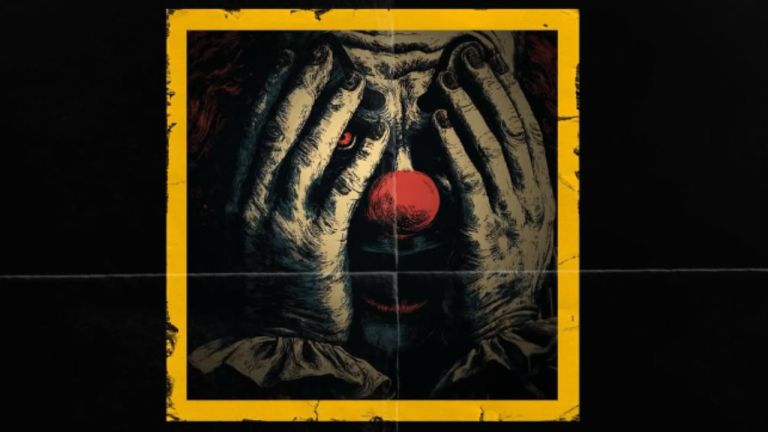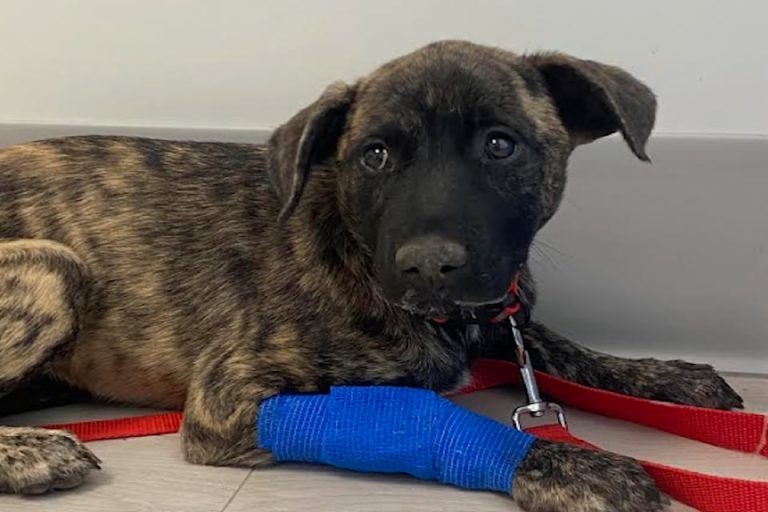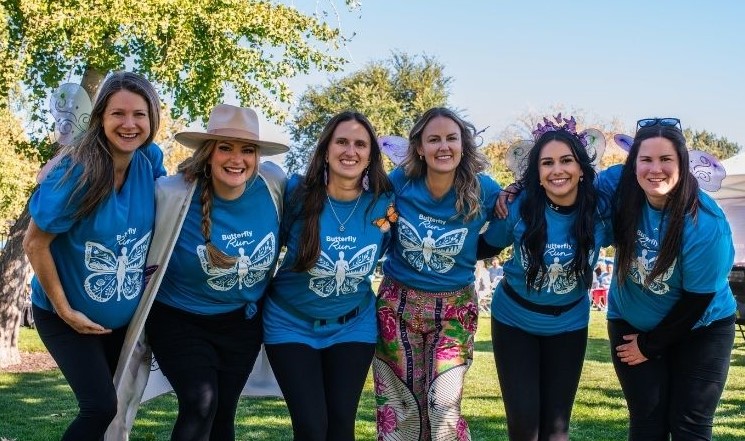Cannabis oil stopped her seizures, now family trying to help others

SUMMERLAND – The family of a young girl from Summerland say her only relief from debilitating seizures has come from an oil derived from marijuana, and they are holding a fundraiser to help other families in the same situation.
Kyla Williams, 3, has a rare form of epilepsy that causes her as many as 300 seizures a day. The cause is unknown but where pharmaceuticals have failed to help, cannabis oil seems to be making a big difference in her quality of life.
“Kyla is doing great now,” says her grandmother Elaine Nuessler, who is organizing the fundraiser this weekend. “We couldn’t even count the number of seizures before because they were one after the other. Now some days she doesn’t have any.”
Kyla first starting having seizures when she was just months old. It took doctors several months to identify the problem however, because her form of epilepsy is very rare and the seizures almost unnoticeable.
“She passes out and completely loses consciousness,” Nuessler says. “If she were standing she would just fall to the floor.”
The Neusslers are in a difficult position now because although they know what Kyla needs, the federal government has yet to legalize the production of the concentrated oil that Kyla takes three times a day.
“These kids need a concentrated oil with low THC to ensure they don’t get the psychoactive part,” Nuessler says. “It’s very frustrating for us to know one particular mix works for Kyla but we can’t get it.”
Two months ago the Neusslers got a letter from Health Minister Rona Ambrose saying although she sympathizes with their situation, the oil is still illegal in Canada and what they are doing could constitute a crime. But the Nuesslers are forging ahead anyway.
“We thought we were alone when we started this journey but when we started reaching out we realized… how many people are going through the same thing,” she says. “They’re showing varied results but without exception all of them are having better results than they ever did on pharmaceutical drugs.”
The family is holding a fundraising dinner and dance Saturday, May 23 at Orchard House in Penticton between 1 and 7 p.m. There will be live music followed by a silent auction.
For more information on the fundraiser or on Kyla’s Quest visit their Facebook page.

To contact the reporter for this story, email Adam Proskiw at aproskiw@infonews.ca or call 250-718-0428. To contact the editor, email mjones@infonews.ca or call 250-718-2724.
Join the Conversation!
Want to share your thoughts, add context, or connect with others in your community?
You must be logged in to post a comment.



















6 responses
I feel that they need to legalize medical cannabis oil and it doesn’t matter the strain low thc high thc as thc is also recognized to help in medical situations such as cancer and even some children with epilepsy need higher in thc and lower in cbds there’s so many different strains of medical cannabis it needs to be straight across the board!! It’s like grapes
Am going to try to share this story to my group “Cannabis Oil For Healthy Living” but not sure if I can.
I’d do the same for my child if it helped, no matter if it was considered “illegal”.I’d like join the public outcry if the parents were ever arrested for helping their child.
One step at a time brother.
“Low-THC strain only” seems to be a new trend in prohibitionist propaganda rhetoric.Read carefully:Charlotte’s story and the concern for other young patients have led some lawmakers to consider passing legislation that only allows patients to access marijuana oils that are high in CBD and that have little or no THC (tetrahydrocannabinol). While it is heartening to see lawmakers’ concern for the plight of patients with catastrophic seizure disorders, these proposals unfortunately exclude the vast majority of those who can benefit from medical marijuana, some of whom also face life-threatening ailments.Relative RarityWhile CBD appears to be particularly effective at treating seizures, the number of individuals treating seizure disorders through medical marijuana programs is relatively low. For example, only 2% of the registered patients in both Rhode Island and Colorado report seizures as their qualifying conditions. While it is imperative that these individuals be allowed to legally access medical marijuana – and the strain they need – it is just as important to remember that there are tens of thousands of other men and women and a small number of children who suffer from a variety of debilitating conditions whose symptoms are alleviated by medical marijuana. The vast majority of those patients have symptoms that benefit from strains of marijuana that include more than trace amounts of THC.THC: Why It Matters.Tetrahydrocannabinol, or THC, is just one of the roughly 85 cannabinoids found naturally in marijuana. Clinical trials and the experiences of hundreds of thousands of patients have shown that THC, and strains of marijuana that include THC, provide important medical benefits for individuals suffering from pain, multiple sclerosis, nausea, and wasting disease. THC is also the cannabinoid most responsible for marijuana’s psychoactive effects. While THC does cause marijuana’s “high,” patients use marijuana for relief, not for euphoria. Patients who inhale marijuana can titrate their dosage precisely to use only as much as they need, reducing or eliminating the euphoria. Some use marijuana only before bed.The federal government has officially recognized THC’s medical properties since 1985, when the FDA approved a prescription drug that is made of synthetic THC — Marinol — for nausea. Yet, Marinol is not adequate for many patients who can benefit from marijuana. For nauseated patients, a pill can be impossible to keep down. Meanwhile, many patients benefit from the synergistic effect of THC and the other cannabinoids, such as CBD. Natural marijuana is less intoxicating than Marinol because patients can titrate their dosage and other cannabinoids moderate THC’s psychoactive properties.Studies have shown that marijuana that includes THC can alleviate a host of debilitating conditions, including:Nausea and appetite loss: Researchers have found THC and marijuana with THC are effective anti-emetics and appetite stimulants for individuals suffering from the side effects of cancer chemotherapy or AIDS treatments.Multiple sclerosis: Research has found that marijuana with THC can alleviate spasticity. In addition, Canada, the U.K., and several other countries approved an oral marijuana extract made of equal proportions of CBD and THC. Pain: Several studies have found that marijuana strains that include THC can alleviate neuropathic pain — a notoriously difficult-to-treat nerve pain commonly found in amputees, AIDS patients, and patients with multiple sclerosis. Since the 1970’s, the federal government has been providing a handful of individuals who suffer from various ailments with marijuana grown at the University of Mississippi as part of the Compassionate Investigational New Drug program. The four surviving patients still receiving federal marijuana receive a strain with almost no CBD that has been essential to managing their conditions — a rare bone spur disorder, multiple sclerosis, glaucoma, and a painful condition called nail patella syndrome, respectively. The marijuana these individuals have benefitted from would not be allowed under CBD-only proposals.ConclusionMedical marijuana legislation should not be so restrictive as to leave behind around 98% of the individuals who can benefit from it. THC has proven medical benefits and individuals who can benefit from strains that include it should not be forgotten when legislators debate medical marijuana bills.http://www.mpp.org/assets/documents/low-or-no-thc-high-cbd.html
“Low-THC strain only” seems to be a new trend in prohibitionist propaganda rhetoric.Read carefully:Charlotte’s story and the concern for other young patients have led some lawmakers to consider passing legislation that only allows patients to access marijuana oils that are high in CBD and that have little or no THC (tetrahydrocannabinol). While it is heartening to see lawmakers’ concern for the plight of patients with catastrophic seizure disorders, these proposals unfortunately exclude the vast majority of those who can benefit from medical marijuana, some of whom also face life-threatening ailments.Relative RarityWhile CBD appears to be particularly effective at treating seizures, the number of individuals treating seizure disorders through medical marijuana programs is relatively low. For example, only 2% of the registered patients in both Rhode Island and Colorado report seizures as their qualifying conditions. While it is imperative that these individuals be allowed to legally access medical marijuana – and the strain they need – it is just as important to remember that there are tens of thousands of other men and women and a small number of children who suffer from a variety of debilitating conditions whose symptoms are alleviated by medical marijuana. The vast majority of those patients have symptoms that benefit from strains of marijuana that include more than trace amounts of THC.THC: Why It Matters.Tetrahydrocannabinol, or THC, is just one of the roughly 85 cannabinoids found naturally in marijuana. Clinical trials and the experiences of hundreds of thousands of patients have shown that THC, and strains of marijuana that include THC, provide important medical benefits for individuals suffering from pain, multiple sclerosis, nausea, and wasting disease. THC is also the cannabinoid most responsible for marijuana’s psychoactive effects. While THC does cause marijuana’s “high,” patients use marijuana for relief, not for euphoria. Patients who inhale marijuana can titrate their dosage precisely to use only as much as they need, reducing or eliminating the euphoria. Some use marijuana only before bed.The federal government has officially recognized THC’s medical properties since 1985, when the FDA approved a prescription drug that is made of synthetic THC — Marinol — for nausea. Yet, Marinol is not adequate for many patients who can benefit from marijuana. For nauseated patients, a pill can be impossible to keep down. Meanwhile, many patients benefit from the synergistic effect of THC and the other cannabinoids, such as CBD. Natural marijuana is less intoxicating than Marinol because patients can titrate their dosage and other cannabinoids moderate THC’s psychoactive properties.Studies have shown that marijuana that includes THC can alleviate a host of debilitating conditions, including:Nausea and appetite loss: Researchers have found THC and marijuana with THC are effective anti-emetics and appetite stimulants for individuals suffering from the side effects of cancer chemotherapy or AIDS treatments.Multiple sclerosis: Research has found that marijuana with THC can alleviate spasticity. In addition, Canada, the U.K., and several other countries approved an oral marijuana extract made of equal proportions of CBD and THC. Pain: Several studies have found that marijuana strains that include THC can alleviate neuropathic pain — a notoriously difficult-to-treat nerve pain commonly found in amputees, AIDS patients, and patients with multiple sclerosis. Since the 1970’s, the federal government has been providing a handful of individuals who suffer from various ailments with marijuana grown at the University of Mississippi as part of the Compassionate Investigational New Drug program. The four surviving patients still receiving federal marijuana receive a strain with almost no CBD that has been essential to managing their conditions — a rare bone spur disorder, multiple sclerosis, glaucoma, and a painful condition called nail patella syndrome, respectively. The marijuana these individuals have benefitted from would not be allowed under CBD-only proposals.ConclusionMedical marijuana legislation should not be so restrictive as to leave behind around 98% of the individuals who can benefit from it. THC has proven medical benefits and individuals who can benefit from strains that include it should not be forgotten when legislators debate medical marijuana bills.http://www.mpp.org/assets/documents/low-or-no-thc-high-cbd.html